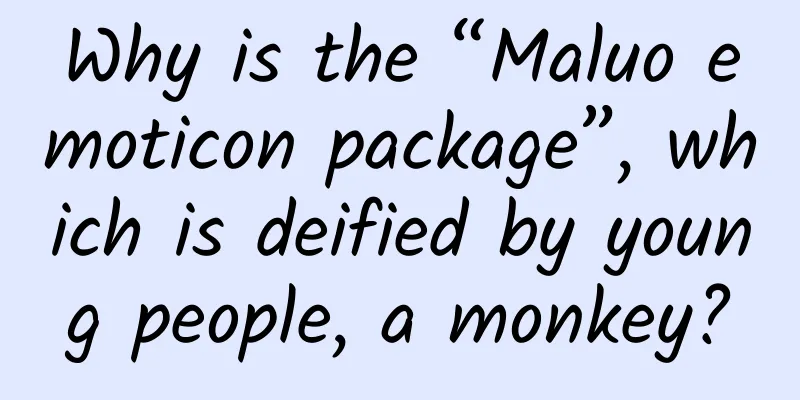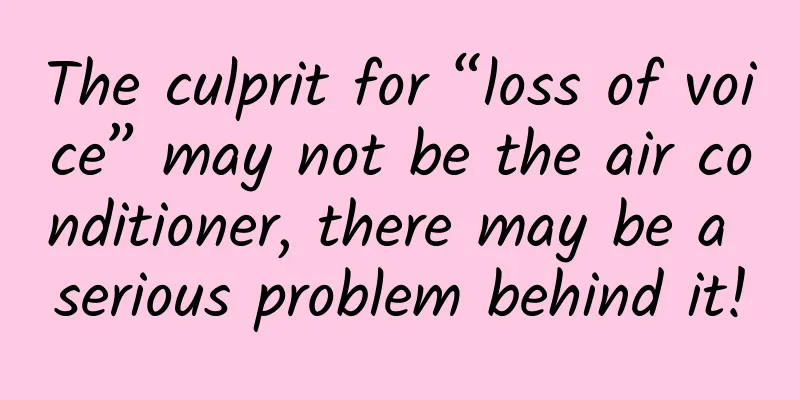Why is the “Maluo emoticon package”, which is deified by young people, a monkey?

|
Looking back at the year 2023, there have been many major events in the world. Today I want to talk to you about a major event in the field of emoticons, that is, the "Malo" emoticon has become popular all over the Internet. Clicking on many WeChat groups is like going to the Flower and Fruit Mountain. "Malo" is the name for "monkey" in many southern dialects. It is a phonetic word. In literature, it is also written as "Maliu", "Maliu", "Maliu", etc. In Mandarin, there is a word that means agility, "Maliu", which is pronounced as "Maliu" in many dialects. In fact, it is a derivative of "Maliu". After all, when it comes to agility, who can compare with Monkey King? In the Ming and Qing Dynasties, "Ma Liu" was also the name of a small boat. The picture is from Volume 7 of "Continued Records of Huaiguan", printed in the 21st year of Jiaqing. This "Ma Liu" is not a new word, at least it has been very popular in the Northern Song Dynasty about a thousand years ago. This word looks simple, but when it comes to its origin, experts have been arguing from the Song Dynasty to the present, and they still have not figured it out. In the 15th chapter of the Ming Dynasty novel Journey to the West, "The Gods of Shepan Mountain Secretly Protect the Eagle in Sorrowful Valley and the Determined Horse Reins", Guanyin scolded Sun Wukong as "bold horse scoundrel" when they quarreled. The picture is from the Shidetang edition of Journey to the West, reproduced in the Collection of Ming and Qing Rare Books. Playing with monkeys, setting up stalls, and writing poems for the top scholar The capital of the Northern Song Dynasty was Bianjing, which is now Kaifeng, Henan. According to the book Juanyou Zalu, which is quoted in Volume 40 of the Collection of Poems and Talks by Ruan Yue, a scholar of the Northern Song Dynasty, there was a kind of monkey show in Bianjing at that time, which was to put a lot of messy things on the ground, and then the monkey would pick up the thing when the name of the thing was called. If the monkey picked up the right thing, the monkey trainer would happily praise it: "It's right, Ma Liu!" "着" (zháo) means "hit, reach", and "马留" is of course a monkey. The Sibu Congkan reproduced the copy of the Ming Dynasty edition of Shihua Zonggui by Yuechuang Daoren. The text of Shihua Zonggui used in this article is based on Zhou Benchun's proofreading, which is slightly different from Yuechuang's version. In the imperial examination in the third year of Xining in the Northern Song Dynasty (1070), a man named Ye Zuqia rose from the fifth rank to the top scholar of the year by flattering the emperor and the court. A candidate who failed the imperial examination gave a poem to the top scholar: Why do you go to enjoy the spring? We should also cherish our good times. Don't trample the flowers with your horse's hooves, Leave it to the sad people as a drunken mat. On the surface, this poem is begging the top scholar: When you are "riding high and galloping", please watch out. We losers are hiding on the lawn drinking alone. Please don't trample the lawn! But there is a hidden meaning in the poem: it is an acrostic poem. If you connect the first word of each sentence, you will get the shout we just saw: "Zhe Ye, Ma Liu!" You see, this person is scolding the top scholar like the big monkey who takes whatever he points at! After listening to the story, let's analyze it from the perspective of linguistics. In addition to telling us that the word "Ma Liu" was created no later than the third year of Xining in the middle of the Northern Song Dynasty, the story also tells us where it became popular. Today, "Ma Lao" is a southern dialect, but if you look closely, the story emphasizes that the shouting came from "the capital", which is authentic Henan dialect. Coincidentally, Hu Zi (zǐ), a scholar living in the period between the Northern and Southern Song Dynasties, wrote in Volume 55 of Tiaoxi Yuyin Conghua (Song Dynasty Miscellaneous Notes, Part II), citing Tongjiang Poetry Talks, saying that in the middle of the Northern Song Dynasty, in Dongping County, Shandong, there was a group of people who specialized in giving people nicknames. There was a senior official named Lü Huiqing, who was thin and made many hand movements when he spoke, so this group of people called him "Fashu Ma Liu". "Fahua" means to talk about the Dharma. At that time, there was a group of people who told Buddhist stories everywhere to promote Buddhism. In order to attract the attention of passers-by, they spoke loudly and made many movements. This was one of the predecessors of later storytellers. Those Dongping people said that Lü Huiqing was the "Ma Liu" of "Fahua", which made Lü Huiqing very angry. Judging from these two records, "Ma Liu" was originally a term used by northerners. Image of the important rhyme book "Zengxiu Huzhu Libu Yunlue" (Ming Dynasty full version) in the early Southern Song Dynasty. The annotation of the word "monkey" in this "dictionary" that guided the Song Dynasty people in the imperial examination is "mi monkey, Ma Liu". It can be seen that in the eyes of Mao Huang and Mao Juzheng, who wrote the annotations, the word "Ma Liu" is not more complicated than "monkey", so it can be used to annotate "monkey". It seems that in the early Southern Song Dynasty, Zhejiang people were also familiar with this word. So where did the word "Ma Liu" come from? In fact, the ancients had different views. Hypothesis 1 The army was marching south with great momentum, but suddenly they turned into monkeys and to whom did they cry? The "Yu Yiqi Notes" of the Eastern Jin Dynasty, quoted in Volume 36 "Wen Shui" of "Shui Jing Zhu", records that General Ma Yuan of the Eastern Han Dynasty left behind a small garrison when he went south to fight. They were all named Ma. These "Ma" people who "migrated" to Yunnan later formed a small ethnic group called "Ma Liu" people. The "First Edition of Sibu Congkan" reproduces the image of the "Shui Jing Zhu" version from the Wuyingdian Juzhen edition. In the following hundreds of years, this story was told countless times. In these retellings, the number of households of the "Ma Liu people" has not changed (it can be seen that these records are most likely copied from "Yu Yiqi Jian", and the recorder himself did not investigate this group of people at all), but there are many other ingredients in the story. For example, in the "New Book of Tang Dynasty: Biography of Southern Barbarians", the "Ma Liu people" is written as "Ma Liu people", who love to fight; the local area is also rich in "gorilla beasts". A photo of the New Book of Tang published in Jiuguge. In the Song Dynasty, when the word "Ma Liu" appeared to refer to monkeys, some scholars associated it with the "Ma Liu Ren" in the literature. For example, "Shao Shi Wen Jian Hou Lu" written between the Song Dynasty said that "Ma Liu Ren" looked like a monkey, so "Ma Liu" was used to refer to monkeys. Zhao Yanwei of the Southern Song Dynasty said in "Yunlu Manchao" that "the northerners say that Hu Sun is 'Ma Liu'" because the "Ma Liu Ren" has a strange voice, which sounds like a monkey. The photocopy of the book Yunlu Manchao of Shejian Zijiu is reproduced in the First Edition of the Collection of Books. In Edgar Allan Poe's novel The Massacre in the Rue Morgue, the French policeman thought it was Spanish, the French silversmith thought it was Italian, the Dutch boss guessed it was French, and the British tailor said it sounded like German... Of course, in the real world, the call of a gorilla is unlikely to be mistaken for human language, but the stereotype that "strange foreign languages or dialects sound like the call of apes" is very common in ancient and modern times, both in China and abroad. However, the Maliu people (or Maliu people) were at most a small ethnic group of 200 households. It is hard to say whether they still existed independently after the Jin Dynasty. Even if this ethnic group still existed in the Song Dynasty, the people living in Henan and Shandong at that time must not have been familiar with this group of people. Why did the northerners choose such a distant and unfamiliar ethnic group to metaphorically represent the common monkeys? Therefore, later scholars generally believe that this hypothesis is just the imagination of the ancients, and no one believes it. Hypothesis 2 The lively little monkey is kept in the stable to prevent horse plague The ancients believed that if monkeys and horses were kept together, the horses would not be easily sick. In Volume 6 of Qi Min Yao Shu by Jia Sixie of the Northern Wei Dynasty, the book quoted the book "Shu" and said that horse breeders "often tie macaques to the stables to make the horses fearless, ward off evil, and cure all diseases." Similar statements have been quoted or paraphrased in a large number of commonly used ancient books, including the Compendium of Materia Medica. In the Wu Za Zu·Wu Bu by Xie Ruzhe of the Ming Dynasty, it was even explicitly stated: "Putting monkeys in the stables to prevent horses from getting sick. The Journey to the West says that the Emperor of Heaven appointed Sun Wukong as the Horse Keeper, which was probably a joke." Some of the Han Dynasty brick carvings show monkeys in stables. The above picture shows a part of a brick carving unearthed from the Eastern Han Dynasty brick carving tomb in Zengjiabao, Chengdu, Sichuan. The monkey is on the right of the horse's head. The picture is from "The Eastern Han Dynasty Brick and Stone Carving Tomb in Zengjiabao, Chengdu, Sichuan", Wenwu, No. 10, 1981. According to Li Shizhen, "Ma Liu" means "animals left in the stable", that is, monkeys. This hypothesis avoids doubts about the geographical location, but it also has problems: if the ancients wanted to use two words to express the meaning of "animals kept in the stable", the most likely expression would be "stable beasts", "lover horses", "horse doctor" or something like that. Who would understand "Ma Liu"? Moreover, if the name "Ma Liu" really came from this legend, then this name could quickly become popular, indicating that the rationale for this word formation is well known. However, those scholars in the Song Dynasty who were familiar with the literature and anecdotes gave a "wrong" explanation. This doesn't make sense, right? Therefore, in modern times, Li Shizhen's view has not been widely recognized. Hypothesis 3 I can't figure out why "Ma Liu" is so strange, I look for it in both ancient and foreign languages The origin of "Ma Liu" is so mysterious that modern scholars began to wonder whether it came from ancient or foreign languages. For example, the famous linguist Zheng Zhangshangfang in his academic masterpiece "Ancient Sound System" imitated the pronunciation of the ancient Chinese "猱" (náo) as *ml´u: (the asterisk indicates that the following sound is an ancient sound speculated and reconstructed by modern experts, the same below), which sounds a bit like the modern "玛喽"; another scholar Pan Wuyun in the book "Historical Phonology of Chinese" even reconstructed the ancient pronunciation of "猱" as a polysyllabic *malu, which is very close to "玛喽". However, ancient pronunciation generally refers to the pronunciation before the Six Dynasties, and how it is connected with the "马留" records that appeared in the middle of the Northern Song Dynasty needs to be explained. Let's look at foreign languages. Wang Xiaodun's book "Research on Early Chinese Thought and Symbols" suggests that in the southern Dongtai language, many languages call "monkey" similar to the ancient reconstruction of "猱" by Zheng Zhangshangfang and Pan Wuyun. For example, "monkey" in "Wupan Zhuang" is called ma4lau2, and "monkey" in Mulao is called mu6lau2, which are similar to "maluo". However, the "Ma Liu" mentioned in the Song Dynasty literature is probably the dialect of the Henan and Shandong regions at that time. If it is related to the Dongtai language, it also needs further explanation. In addition, Husile's article "The Etymology of "Ma Liu"" proposed that it may come from the Jurchen word *monio, which means monkey. However, in the middle of the Northern Song Dynasty, the Jurchens had not yet risen, and their language was probably difficult to influence the hinterland of the Liao Dynasty, let alone the distant Northern Song Dynasty. Moreover, according to the general understanding of modern academic circles, if the tone is not counted, the Song Dynasty pronunciation of "Ma" is likely to be different from mo; the Song Dynasty pronunciation of "Liu" is even farther away from nio... In addition to the above three categories of theories, experts have proposed several different possibilities, but each has its own problems. To this day, the academic community still cannot determine the etymology of "Ma Liu". This article is a work of Science Popularization China-Starry Sky Project Produced by: Science Popularization Department of China Association for Science and Technology Producer|China Science and Technology Press Co., Ltd., Beijing Zhongke Xinghe Culture Media Co., Ltd. Author: Cleaner, PhD student at Nankai University Review丨Liu Yun, Professor of the School of Chinese Language and Literature, University of International Business and Economics Wang Hongzhi Associate Professor, School of Humanities, Shanghai Normal University |
>>: Let me show you some colors! The source of color in the food world
Recommend
Do you get gastroenteritis as soon as summer comes? Beware of these 5 daily habits you ignore!
You or someone around you must have had this expe...
One picture to understand: What should you do if a cyst is found during a physical examination?
"Nodules", "polyps", "cy...
Gentle White is Not White · Douyin 0-cost project: single-day income of 500, no work release, no account maintenance [video course]
Gentle White is Not White · Douyin 0-cost project...
Closures, mergers, transfers and layoffs: Who is crying in the car market with seawater on one side and fire on the other?
According to the China Passenger Car Association,...
Blizzard, frost, fog, strong wind, four warnings are issued at the same time! Please pay attention to health and safety during the Spring Festival travel
Since 2009 The heaviest rain, snow and freezing w...
Changge SEO training: Issues that SEO must consider in the early stages of website construction
When it comes to websites, everyone knows and und...
You may not have noticed, but the ocean seems to be about to "explode"
Produced by: Science Popularization China Author:...
How to conduct refined data operation analysis?
The degree of refinement of efficient operations ...
20 good voice side jobs to make money, so that 90% of people can make a gorgeous "voice", use the voice to easily make money, and earn more than 10,000 yuan a month
A voice beautification instructor for millions of...
"Healthy eating" series | How to eat healthily in spring? Here are the secrets to "keeping healthy"
...
Rains at the turn of spring and summer bring forth all kinds of grains. What is the significance of “Gu Yu” to agricultural production?
April is halfway through, and the weather is gett...
The “national heavy equipment” passed the acceptance inspection! The results of Qian Xuesen and Guo Yonghuai’s “strategic deployment” decades ago finally came to fruition
Recently, in the Huairou Science City in Beijing,...
Zhuorang Xianyu Xiaobai five-day training camp, one hour a day, make money easily and faster [video course]
Zhuorang Xianyu Xiaobai five-day training camp, o...
How to improve the opening rate of APP activity push?
Activity push is an important way for products to...
What would you do if you passed through the center of the Earth? The answer is a bit weird
Apophobia is the fear of falling, which most huma...









